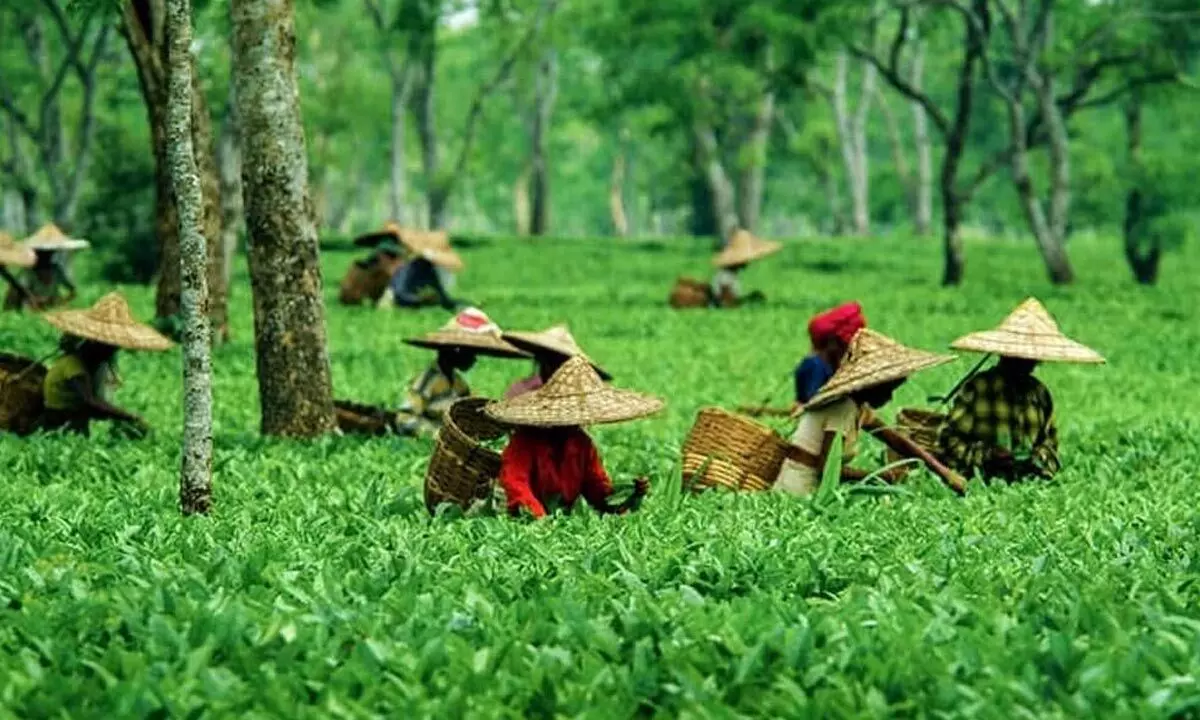Wise decision to promote ‘small’ country’s tea growers
The Tea Board of India recently formed a nine-member core committee to address the issues of small tea growers. The country has around 2.5 lakh small tea growers, who together, contribute close to 52 per cent of the total production in the country.
image for illustrative purpose

The Tea Board of India recently formed a nine-member core committee to address the issues of small tea growers. The country has around 2.5 lakh small tea growers, who together, contribute close to 52 per cent of the total production in the country. Interestingly, a few months back Union Minister Piyush Goyal said at the Indian Tea Association’s (ITA) International Small Tea Grower's Convention that small tea growers will have the biggest role to play in shaping the future of the country’s tea sector. Going by the Tea Board of India statistics, approximately, 1,278.07 million kilo tea was produced from January to November last year, to which the small tea sector contributed 660.73 million kilos. In Bengal alone, nearly 57 per cent of tea (the state produces around 400 million kilos), comes from this sector. Among Bengal’s three tea belts — Darjeeling, Terai and the Dooars — the small tea plantations’ contribution is highest in Terai. Under existing rules of the tea board, a grower owning a plantation area of less than 10.12 hectares with no processing unit is classified ‘small’.
It has been a long pending demand of the small growers that such a special committee be set up to look into their concerns. Now the committee would be an informal platform for exchange of ideas and deliberations on the status of the industry, its challenges and solutions. The director of tea development is the committee secretary and convener. The other eight members are representatives of small tea growers’ associations of tea-producing areas like north Bengal, Assam, Nilgiri, and Kangra. The Confederation of Indian Small Tea Growers (Cista), the national body of small growers, has also been included in the committee.
The minister, on his part, had said that the government, as an enabler, has taken various steps to support small tea growers, such as implementation of online licensing system, auto-renewal of three types of licences-exporter, tea waste and tea warehouse. Darjeeling Tea was the first GI tag product, now two other variants of it Green & White also hold GI tags. Development of Chai Sahyog mobile app is another landmark of Indian tea ecosystem. Moves are afoot at the government and non-government levels to support small growers and help them to improve quality with sustainability and increase production to meet domestic and international demand.
Meanwhile, in another important development, anticipating a rise in the demand for quality tea, Hindustan Unilever (HUL) has collaborated with sustainability consultant NRB Estate to impart knowledge of good agricultural and manufacturing practices to small tea growers (STG) or small holder farmers (SHF) and bought leaf factories. In the pilot project launched by the tea major in 2021, a team of experts from NRB has been assisting STGs and BLFs in Assam through knowledge-led interventions on field, hands-on training and use of mobile apps. With this medium to long-term project, NRB experts are fine-tuning STG-BLF production procedure. They are already thinking in terms of expanding the scope of the project, depending on the desired result. These initiatives for small tea sector will enhance quality and income sustainability.

